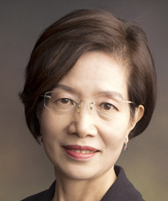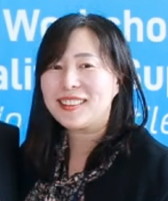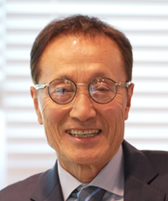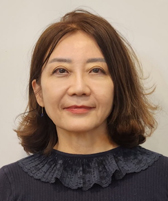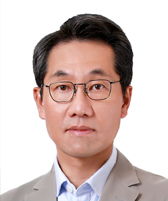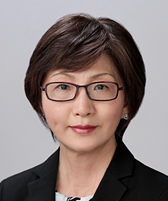Moderator DAY 1 - DAY 2
Sun Hee LEE, Ph.D. / 이선희Ewha Womans Univ., Regulatory science expert member of the National Bio-Pharmaceutical Commission
Bio
Professor Sun-Hee Lee has been in charge of regulatory science research and review for the life span, from development of pharmaceuticals and related convergence products to clinical research, manufacturing, and post-approval safety/efficacy, and quality management, at the Ministry of Food and Drug Safety for over 30 years. She is a regulatory scientist with extensive experience in crisis response and problem solving in the field. In particular, she played a central role in Korea becoming an ICH member in 2016 through ICH international cooperation activities as a national representative.
After retiring from public office in 2019 as the Director General of the National Institute of Food and Drug Safety Evaluation at the Ministry of Food and Drug Safety, she is now a professor at the Graduate School of Industrial Pharmaceutical Science at Ewha Womans University, and as the Director of the Education Development Institute and founder of the Ewha Womans University Pharmaceutical & Bio-Pharm Convergence Education Center, she is working hard to foster global regulatory science talent working in the industry.
In particular, Professor Sun-Hee Lee is serving as a regulatory science expert member of the National Bio-Pharmaceutical Commission, chaired by the President, which was launched in January 2025.
DAY 1 April 23 (Wed)
Opening Session
Chang-Hee CHO, Ph.D. / 조창희Ministry of Food and Drug Safety
Bio
Dr. Cho has over 25 years of experience at the Ministry of Food and Drug Safety (MFDS), specializing in drug evaluation, bioequivalence assessment, post-market GMP inspection, pharmacovigilance (PV), Risk Management Plan (RMP) implementation, and the monitoring of adverse drug reactions.
Currently, she serves as a senior Scientific Officer in the Pre-Submission Consultation Division, where she is responsible for supporting the product development and commercialization of pharmaceutical products.
Her academic background includes a Ph.D., M.A., and B.A. in Pharmacy from Dongduk Women's University, Seoul, Korea. She was also awarded an exchange scholarship to Oregon State University in the United States, where she broadened her international perspectives in pharmaceutical sciences.
Presentation summary
Government Support Strategies for the Commercialization of New Drug Development
The biopharmaceutical market is growing rapidly and now accounts for 40% of the global pharmaceutical industry, highlighting its increasing significance. For Korean bio-companies to secure a competitive edge in the global market, the role of regulatory science that aligns with international standards has become more critical than ever.
At the Pre-Submission Consultation Division of the Ministry of Food and Drug Safety (MFDS), we provide early-stage scientific consultations to help guide the direction of new drug development from the initial research phase. Starting this year, we have launched a targeted management system that ensures seamless support from early consultations through to final marketing approval.
In this presentation, I will introduce the role of the Pre-Submission Consultation Division in supporting new drug development, share past achievements, and highlight the key initiatives we are implementing this year.
Session 1 CMC Small Molecules
Jun Young CHOI, Ph.D. / 최준영Head, Division of R&D, ST Pharm
Bio
Jun Young Choi currently serves as the Head of R&D at ST Pharm, a position he has held since joining the company in 2021. He obtained a BS in Chemistry from Yonsei University in 1992, a Ph.D. in Organic Chemistry under Prof. Yong Hae Kim at KAIST in 1997, and an MBA in Health Sector Management from Boston University in 2018.
Dr. Choi completed post-doctoral research with Prof. Scott Denmark at the University of Illinois Urbana-Champaign (1997–1999) and with Prof. Rich Borch at Purdue University (2005–2007). Over the past 15 years, his work in process chemistry development has been centered on nucleic acid chemistry, encompassing modified nucleotide prodrugs, oligonucleotides, and mRNA capping reagents.
With more than 20 years of industrial experience, Dr. Choi has contributed to organizations such as Hanwha Chemical, Synta Pharmaceuticals, Idenix Pharmaceuticals, and Nitto Denko Avecia. He has co-authored over 15 peer-reviewed publications and holds several patents.
Presentation summary
Strategies to Streamline CMC Development and Expedite Regulatory Clearance: Risk- and Platform- Based Approaches
The Chemistry, Manufacturing, and Controls (CMC) aspect of drug development is a pivotal yet complex phase that directly impacts the successful launch of new therapeutic products. This presentation delves into innovative strategies to streamline CMC processes and facilitate expedited regulatory clearances, focusing on risk-based and platform-based approaches. Risk-based strategies involve prioritizing critical quality attributes (CQAs) and leveraging Quality by Design (QbD) principles to ensure robust and efficient manufacturing processes. By employing systematic risk assessments, organizations can identify and mitigate potential challenges early, reducing delays and ensuring compliance with regulatory requirements. Platform-based approaches, on the other hand, utilize standardized manufacturing and analytical frameworks that can be adapted for multiple drug candidates, such as oligonucleotides. These platforms enhance scalability, minimize variability, and accelerate the transition from development to production.
Session 2 CMC Biologics
Jun Tae PARK, Ph.D. / 박준태
U.S. Regulatory Expert, KHIDI
Bio
Dr. Jun T. Park is a seasoned regulatory and CMC expert with over 30 years of experience in the US FDA and the biotech industry. His expertise encompasses monoclonal antibodies, antibody-drug conjugates, cell and gene therapies, biosimilars, exosomes, and microbiomes. Currently, he consults for KHIDI, assisting over 100 Korean pharmaceutical and biotech firms with global regulatory strategies and CMC development, and serves as an advisor to NIFDS, focusing on advancing medical product review systems. As an adjunct professor at Dongguk University, he teaches regulatory policy. Previously, Dr. Park led exosome-based therapy development at ILIAS Biologics, achieving an FIH clinical trial in Australia, directed CMC development for gene therapy products at Helixmith, earning FDA RMAT designation, and served as a CMC reviewer at FDA/CDER, overseeing IND/BLA submissions and global GMP facility inspections. He holds a Ph.D. in Biochemical Engineering from Worcester Polytechnic Institute in the US and an MS and BS in Chemical Engineering from KAIST and Yonsei University, respectively.
Presentation summary
Key Regulatory and CMC Considerations for the Novel Drug Modalities
The biopharmaceutical industry is undergoing a transformative shift, particularly in oncology and other complex disease areas, driving innovation and the emergence of new drug modalities, such as bispecific antibodies, antibody-drug conjugates, cell and gene therapy products, and RNA vaccines and therapeutics. While these advanced platforms offer tremendous opportunities, they also present significant challenges. Developing such modalities often involves complex CMC-related manufacturing challenges, influenced by the complexity and characteristics of the product structures, as well as their stability.
This presentation will explore key regulatory and CMC considerations for these groundbreaking drug modalities.
Session 3 Non-clinical (Small Molecules / Biologics)
Yangmee SHIN, Ph.D. / 신양미U.S. Regulatory Expert
Bio
Dr. Shin received her undergraduate degree and Master of Science degree in College of Pharmacy from Sung Kyun Kwan University in Korea. During the Master course in Sung Kyun Kwan University, she worked as a research assistant at the Natural Products Research Institute, Seoul National University, studying coumarins on drug metabolism. She then received her Doctor of Philosophy degree in Pharmacology from the Ohio State University, College of Pharmacy. During the graduate course, Dr. Shin conducted researches on the pharmacological characterization of thromboxane and prostaglandin receptor antagonists. Following her PhD degree, Dr. Shin completed Visiting Fellowship and Intramural Research Training Award Fellowship from the National Institute of Diabetes and Digestive and Kidney Diseases, National Institutes of Health. Her main research projects involved signal transduction and molecular mechanism of natural products. She subsequently worked in the Laboratory of Molecular Neurochemistry at the Georgetown University Medical Center, focusing on the expression and function of dopamine receptors and nitric oxide synthases in peripheral tissues. Dr. Shin joined the Division of Bone, Reproductive, and Urologic Products, US Food and Drug Administration, and is currently Master Pharmacologist in the Division of Pharmacology / Toxicology for Rare Diseases, Pediatrics, Urologic and Reproductive Medicine.
Presentation summary
Current Nonclinical Testing Paradigm for Drug Development: A Regulatory Perspective
To support clinical trials and marketing authorization for pharmaceuticals, certain nonclinical studies on the pharmacology, pharmacokinetics/ADME, and toxicology are recommended based on ICH guidances. The types of nonclinical studies are determined by many factors including the type of drug, clinical indication/population, scope of clinical investigations, and existing nonclinical or clinical experience. In recent years, new approaches such as alternative methods and non-animal methods are being introduced to replaces the use of animals, reduce the number of required laboratory animals, or refine a test procedure in accordance with 3R (reduce/refine/replace) principles. In this presentation, I will discuss the current regulatory considerations and key nonclinical studies to support investigational and marketing application submissions based on publicly available information and guidelines.
DAY 2 April 24 (Thu)
Company Session Small Molecules Development & Approval
Mr. Donghoon LEE / 이동훈CEO & President, SK Biopharmaceuticals Co., Ltd. and SK Life Science, Inc.
Bio
Mr. Donghoon Lee is a Chief Executive Officer and President of SK Biopharmaceuticals and its U.S. subsidiary SK Life Science, SK Life Science Labs. He is leading investment and management of high-growth bio/healthcare sector at global perspective.
Mr. Lee previously held leadership positions at a renowned global professional services firm, KPMG, and pharmaceutical companies, including as the CEO and Executive Vice President of Dong-A Socio Holdings.
He was also a Head of Bio Investment Center of SK Inc., where he executed key investment deals in line with SK Group's vision to fortify battery, bio, and chip (BBC) businesses as its main growth drivers. He spearheaded SK's global deals such as acquiring France-based Yposkesi, a CDMO for cell and gene therapies; and making investments in the Center for Breakthrough Medicines, a Philadelphia-based cell and gene therapy CDMO, and Singapore-based biotech company Hummingbird.
During his tenure at SK Inc., he played a key role in establishing Proteovant, a joint venture between SK Inc. and US-based Roivant Sciences and later, as CEO of SK Biopharmaceuticals, he led the acquisition of Proteovant, securing globally competitive TPD technology.
He recently accelerated RPT business by establishing stable supply chain for the rare radioisotopes and expanding strategic agreements with leading institution and companies globally.
Mr. Lee holds CFA and CPA credentials. He got Master of Business Administration from Ohio State University, and Bachelor of Business Administration from Seoul National University.
Presentation summary
XCOPRI: U.S. Commercialization, Meaningful Success, and Next Steps
SK biopharmaceuticals is the first Korean pharmaceutical company to independently develop a new drug from discovery to clinical trials and FDA approval.
Our innovative epilepsy drug, XCORPI, now emerging as a game changer, is the result of 30 years of CNS expertise and sustained R&D investment.
This presentation will highlight XCOPRI’s U.S. launch and its impact on our growth strategy.
With FDA approval, we established a direct sales infrastructure in the U.S., gaining full control over commercialization and ensuring consistent revenue growth.
Leveraging XCOPRI’s strong sales performance, we are expanding into new therapeutic areas and driving our next phase of growth.
Session 4 Clinical (Small Molecules / Biologics)
Sang Mok CHUNG, Ph.D. / 정상목U.S. Regulatory Expert, BIOSTAR
Bio
Dr. Chung has over 25 years experiences at the full breadth of new medicinal product development and leadership, which include portfolio management as follows:
therapeutic modalities (e.g, small molecule, peptide, oligonucleotide, therapeutic proteins, Cell & Gene therapy products)
therapeutic areas (e.g., diabetes, lipid disorders, obesity, osteoporosis, endocrinology, pulmonary, allergy, auto-immune, metabolic dysfunction-associated steatohepatitis, pain, neurology, oncology, and rare disease)
therapeutic product presentations (e.g., conventional formulations to complex presentations including drug-device combinations)
product lifecycle management (e.g, post-market valuation, Post-Market Requirement, 505(b)(2), biosimilar or ANDA)
strategy building and enhancing probability of technical and regulatory success in R&D and multi-regional clinical trials
Dr. Chung is currently responsible for the global clinical R&D as the president at Biostar group. Dr. Chung earned Ph.D. from College of Pharmacy at the University of Illinois at Chicago.
Presentation summary
Clinical Development Strategy: The Good and The Ugly
The clinical development of new drugs is a complex and highly regulated process that presents both significant valuation opportunities and challenges. It is essential for bringing innovative therapies to market, improving patient outcomes, and addressing unmet medical needs. However, the journey from translation of non-clinical information to regulatory approval is fraught with scientific, financial, and logistical hurdles. Challenges of clinical development attribute to high costs with high failure of new drug development. Despite these challenges, comprehensive development strategies and operations reflecting continued innovation, strategic planning, and regulatory adaptation can help expedite the clinical development of new, life-saving drugs.
In this presentation, cases with a best clinical development strategy and master plan will be highlighted how valuation can be enhanced through better clinical development strategy provided the timely execution, and those may lead to a game changer.
Session 5 Regulatory
Hae-Young AHN, Ph.D. / 안해영U.S. Regulatory Expert, AhnBio Consulting
Bio
Dr. Hae-Young Ahn is the Chief Executive Officer and President of Ahn Bio Consulting, Inc (ABC). She is also the principal consultant, with expertise in building regulatory strategies for the development of small molecule drugs and biologics. She has represented numerous pharmaceutical companies in regulatory meetings with the Food and Drug Administration (FDA) as well.
Prior to founding ABC in January 2018, Dr. Ahn served as a Deputy Division Director in the Office of Clinical Pharmacology (OCP) at the Center for Drug Evaluation and Research (CDER) within the FDA, for over 11 years. She joined the FDA in 1990 as a research scientist. During her 27- year tenure at the FDA, she held several positions including a Clinical Pharmacology and Biopharmaceutic Reviewer, Clinical Pharmacology Team Leader, and Deputy Division Director. She was a member of the senior leadership team in OCP. Additionally, she served as a Senior Advisor to the Office of New Drugs (OND) Associate Director for Therapeutic Biologics on broad policy and strategic initiatives related to biosimilars, follow-on protein products and other related complex products. She also served as a member of many CDER coordinating committees and working groups such as Complex Drug Substance Coordinating Committee, Biopharmaceutical Coordinating Committee, Biosimilar Implement Committee, Biologic Oversight Board, and Hepatic Impairment working group.
Dr. Ahn received her B.S. in pharmacy from Ewha Women’s University, M.S. in pharmaceutics from Seoul National University, and Ph.D. in pharmaceutics from West Virginia University. She completed postdoctoral training in pharmaceutics at the University of Michigan. She also earned the Regulatory Affair Certificate (RAC).
Presentation summary
Regulatory Strategies in Successful Drug Development and Approval
New drug development is a high-risk, expensive and long-term endeavor: it can take 10 to 15 years and average cost to develop a new drug may exceed $2.5 billion. Its success rate is relatively low, but if drug development succeeds, it can yield high returns.
Successful drug development requires thorough early strategic planning. It needs to begin with the goal in mind throughout the entire drug development process, and both drug development and regulatory strategies should be planned and executed accordingly. It is also very important for successful drug development to have good understanding of how a regulatory agency works and to efficiently interact with them. For drug companies pursuing novel drug developments, it is critical to understand regulatory agency’s review process and review tools, to utilize the programs which facilitate new drug developments, and to seek input from them for guidance.
In this presentation, the following topics will be discussed:
- FDA’s expedited program
- FDA’s review process and PDUFA VII
- Meetings with FDA including new meetings created under PDUFA VII
The emphasis of the presentation will be on the keys for efficient interactions with the FDA.
